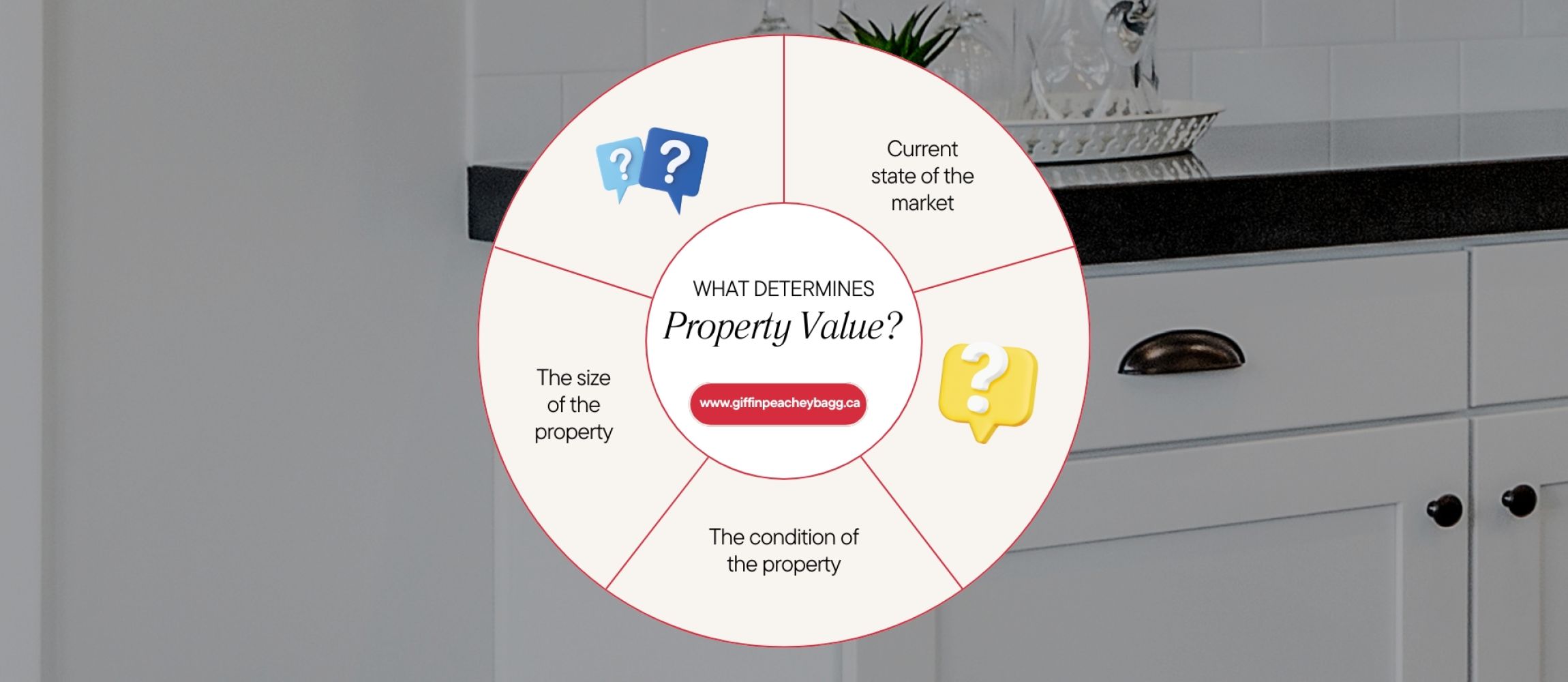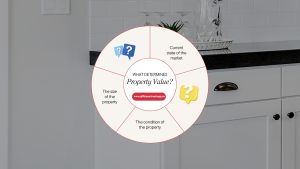
How the Market Determines Your Property Value

Understanding how the market determines the value of your property is important, whether you’re buying, selling or simply curious about your home’s worth. Your property’s value is ultimately what a buyer is willing to pay for it. To set an ideal list price, it’s essential to consider several important factors:
Key Factors That Influence Property Value of Real Estate
- Location: Often the most significant factor, location can greatly affect your property’s value. Proximity to schools, parks, shopping centers and public transportation can make a property more desirable.
- Size: The total square footage and the number of bedrooms and bathrooms play an important role in determining property value. Larger homes with more amenities typically have higher values.
- Condition: A well-maintained property will generally command a higher price. This includes the age of the home, the condition of the roof and other mechanical factors like the heating and cooling Systems, the curb appeal of the property and extent of landscaping, and the state of the interior and exterior of the home in regard to cosmetic updates.

- Current Market Conditions: The real estate market can be a buyer’s market, a seller’s market, or a balanced market. In a seller’s market, there are more buyers than available properties, driving up prices. Conversely, a buyer’s market has more properties than buyers, which can lower or level out prices. Knowing current market conditions can help you better understand the value your property.
- Community or Building Amenities: Properties with access to desirable community features such as good schools, shopping areas, Parks and Green space, or building amenities (in respect to Condos), such as swimming pools, gyms, and security, are often valued higher.
- Current Interest Rates: Lower interest rates can increase buyer demand, thereby raising property values. On the flip side, higher interest rates can reduce demand and lower the overall sale price captured.
- Local Competition: The number of similar properties for sale in your area can also affect your home’s value. If there are many comparable homes available, your property may be valued lower to remain competitive.

The Importance of Location
Location is often cited as a critical factor in determining property value. This principle applies not only when selling but also when buying. A desirable location can significantly boost your property’s value.
Conducting a Comparative Market Analysis (CMA)
One of the best ways to determine your property’s approximate value is by having your trusted real estate professional conduct a Comparative Market Analysis (CMA). This involves comparing your home to similar properties that have recently sold in your area. The CMA considers factors such as location, size, overall condition and area amenities to estimate the most accurate value possible.
It is always best to consult a local trusted real estate professional to work with you to determine your home’s projected value!
Conclusion
Understanding the factors that influence property value is essential- By considering location, size, condition of the home, market conditions, amenities, interest rates, and area competition, you can better estimate your property’s worth. Choosing the best real estate person to work with is an effective way to get a precise valuation and make informed decisions.
If you’re looking for personalized advice on your property’s value, feel free to Contact Us. We’re always here to help with your real estate needs, whether you’re looking to move now or in the future. Preparation is key, and we would love to keep in touch!